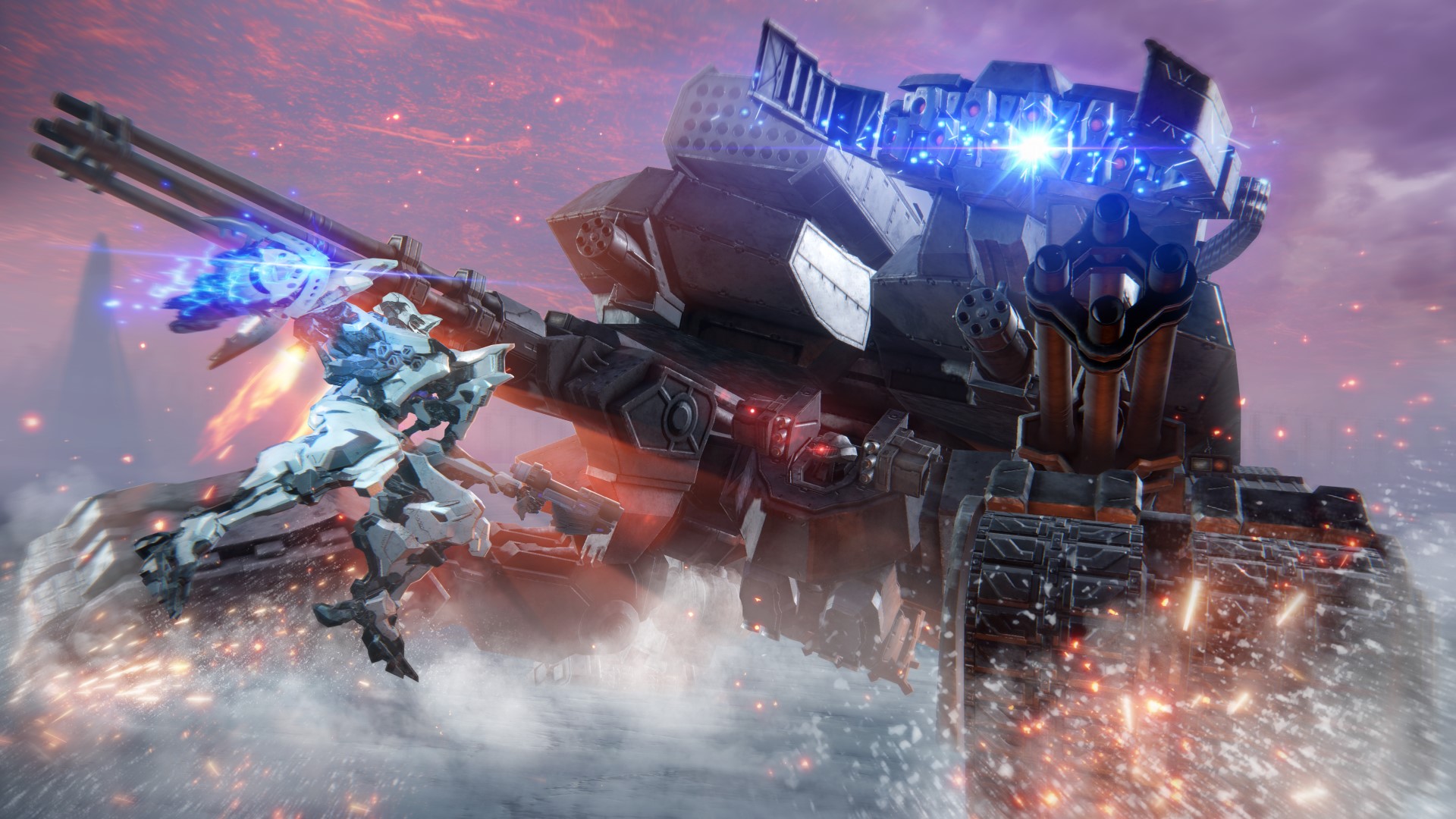
Is playing Armored Core 6 fun? Ask me now, having had an afternoon to roll around on its wasteland battlefields, and I'd give a tentative, creaking "ye-es?" before hastily rattling off a string of qualifiers and provisos. A surprising ambivalence for a gameplay idea as approachable as "big robots", but I can't say I didn't enjoy myself from time to time. Beating an angry washing machine to death with four weapons at once is a hard thing to get completely wrong, and I suppose I do want to go back to that world, if only to wrestle with my feelings on it a little more.
Mecha? I hardly know 'er!
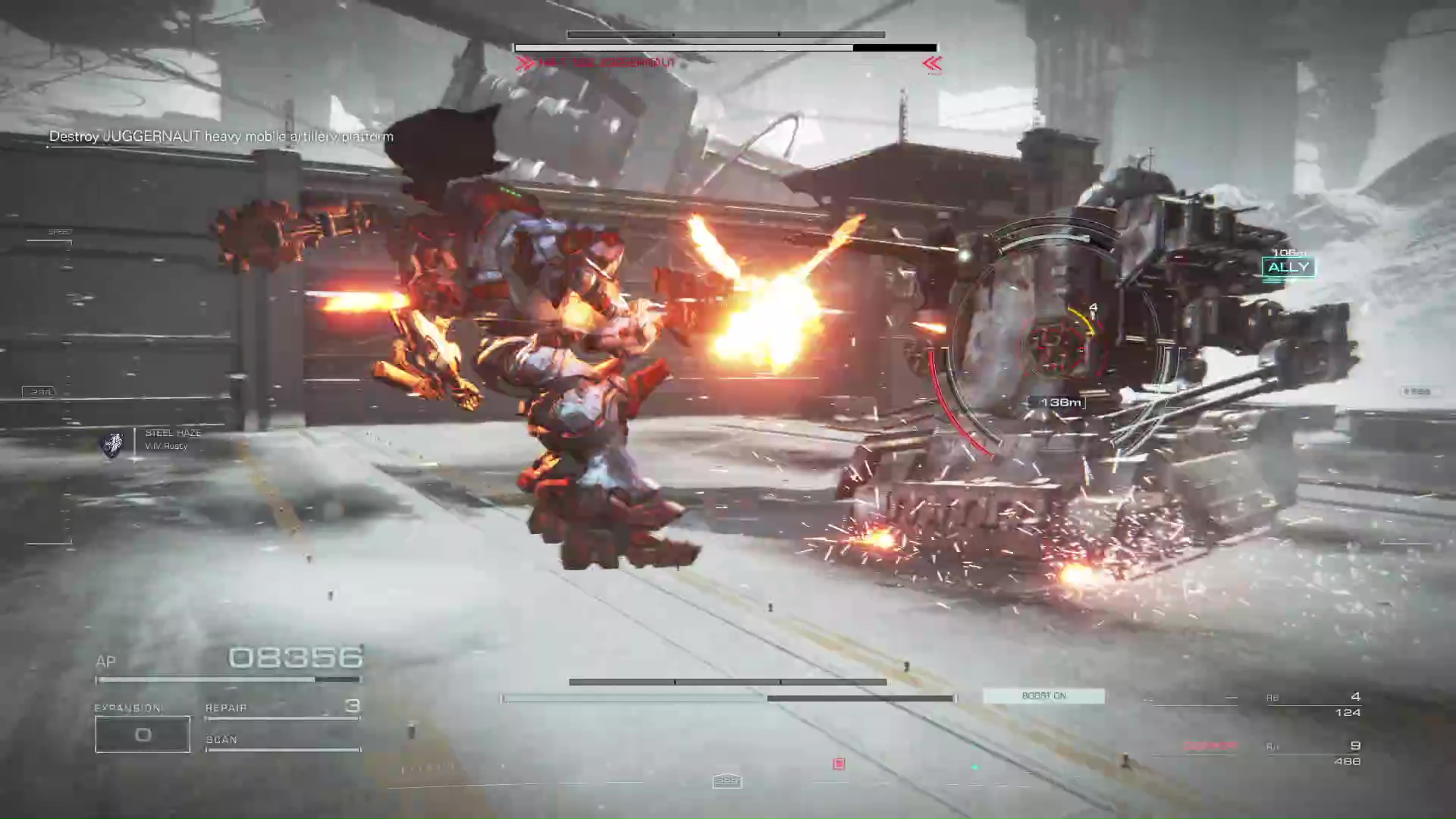
I always thought of myself as a big FromSoftware fan, but that's solely from the post-Soulsborne era, and this was my first real exposure to the venerable Armored Core series that first started up back in 1997. So yeah - I'm speaking for the uninitiated, not the veteran bot-busters. With no real expectations, I was given the first few hours of Armored Core 6 to play, and yes, died more than a few times on the way. I don't know if those previous games in the series were any more merciful, but FromSoftware clearly has a reputation to live up to now, so don't expect Armored Core to be a gentle hug after the face-stinging slaps of Elden Ring.
And don't expect emotional investment in the narrative to be what pushes you through that challenge, as the story of AC6 so far is an oddly cold burn. You play as Pilot 621, a mercenary mech operator on the distant world of Rubicon, where… Some sort of conflict is happening, and frankly that's about all I'm willing to commit to the record right now. To be honest it didn't seem particularly important, especially when the early missions seem to be all about your character shifting back and forth between all the different sides depending on who sent you a paycheck most recently. You blow up a mining ship when a corporation pays you to, then somebody hires you to wreck the corporation's shit, and on and on it goes.
It's all very impersonal and not very compelling as raw plot, especially considering it's all delivered through audio, with no human faces ever seen for even a moment. The only time I found myself waking up to events was a gloomy, if effective mission where you're tasked to destroy an advanced enemy mech - but it's only after beginning the attack that you realize that it's being piloted by some frightened junior engineer who barely has his learner's license. Consequently you're forced to listen to his wails for help, even as you turn him to charred bone and scrap metal. In moments like that, Armored Core 6 sometimes made its sense of detachment feel intentionally, poignantly dehumanizing - but it was, sadly, just moments of impact in a wider, blander story. After the imagination-capturing worlds of Dark Souls and Bloodborne, I don't think I was wrong in hoping for more.
Robot Soars
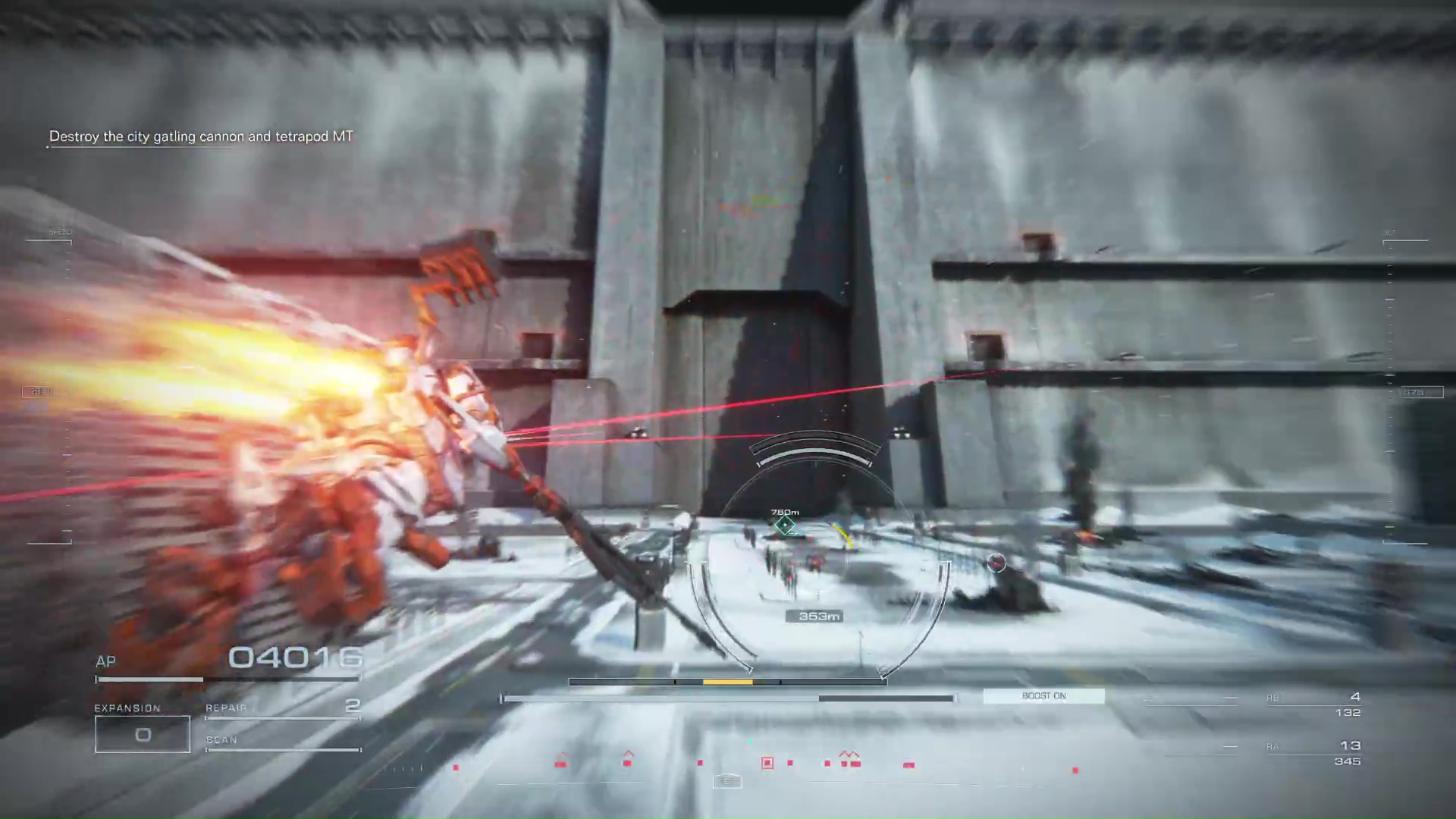
Still, all this plot is here to serve what clearly matters more to the creators - namely, big robot pummelling sessions. Gameplay is broken up into missions selected from your base, along with optional arena fights, and there's a reasonable amount of variation, including bosses comprising every flavor of overdesigned war machine you can think of. They're pretty tough bosses too, especially one against a bozo with a hula-hoop of missile launchers around him. The game goes full-bullet hell in many moments, and I was reminded often of Returnal, dashing in all directions to avoid a flurry of unrelenting shots from every angle.
With that in mind, I will say that the movement feels pretty slick, at least when you haven't drained your stamina. On land you glide rapidly about like you're on roller skates, nearly always the fastest and most agile thing on any battlefield, relying more on evasion than resilience. You can't fly indefinitely, but you can soar and air-dash for a decent while before needing to land and get your breath back. Plus there's a rocket-powered aerial charge for closing distances that's very satisfying to use, where you go thundering forward and can practically feel the G-force rippling your lips along the way. I found that mobility and control was Fire of Rubicon's strength, more so than the combat, which was a bit of a mixed bag.
Rock 'em or, alternatively, sock 'em
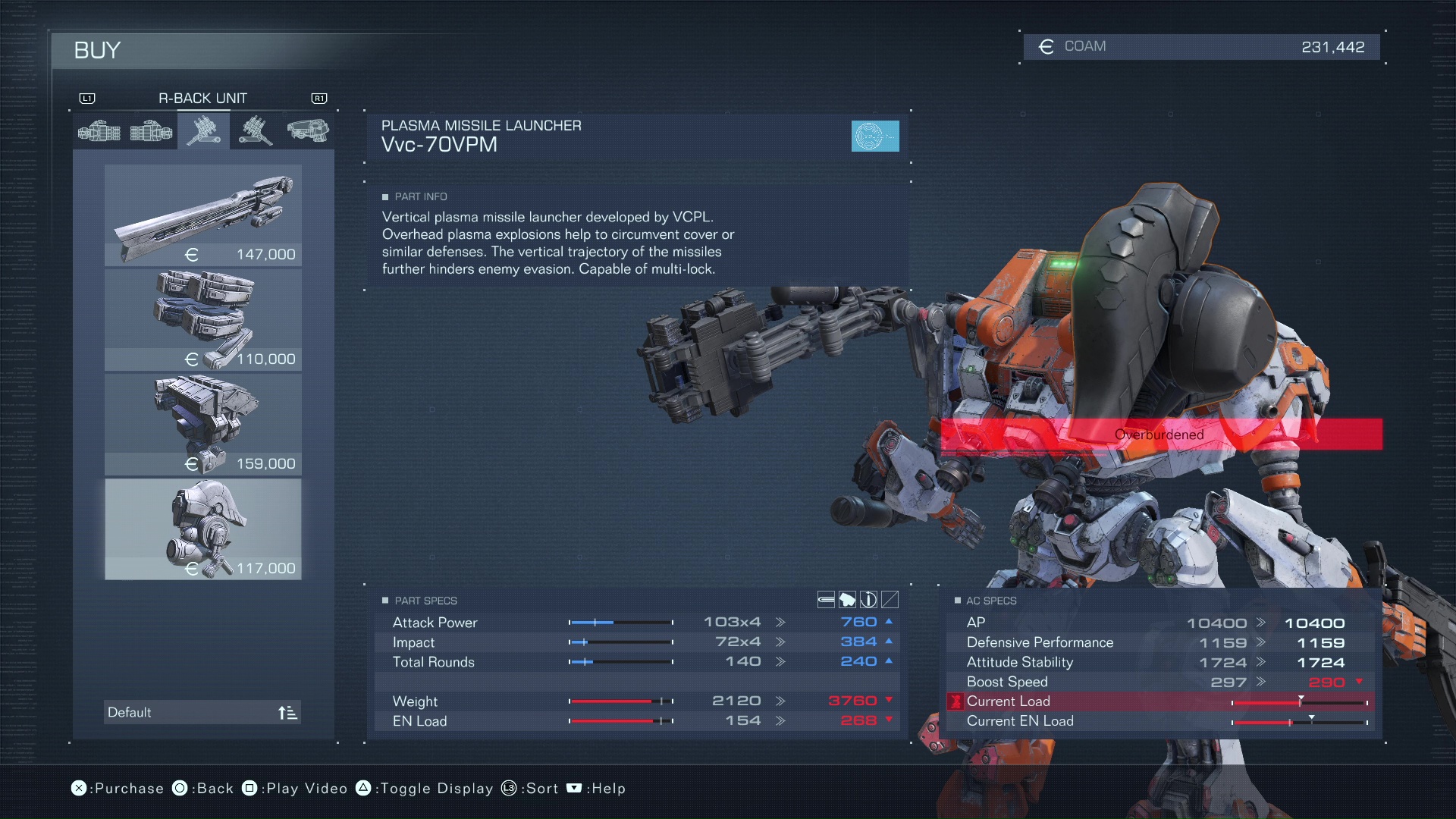
You can customize practically any part of your mech suit, fiddling with the particulars in your garage between missions, but most importantly you can stick on four weapons or pieces of equipment at once - a standard gun or melee weapon in each hand, and something a little spicier on each shoulder, like an energy shield or a missile launcher. You dash around unleashing a maelstrom of cannon shots, sword swipes and rocket barrages, but the weapons don't tend to have very good feedback, and aren't always especially engaging to use. My sword swipes kept going over enemies' heads because of the slightest variation in ground level, and despite many combinations of loadout, I never found my actual strategy having to change in the slightest - namely, fling yourself about and never let go of the fire button. Customization is a great idea, but the builds don't feel especially distinct, at least in the early phases of the game I got to experience. Maybe - hopefully - that changes later.
I found that mobility and control was Fire of Rubicon's strength, more so than the combat, which was a bit of a mixed bag.
Beyond that, there are just some peculiar design choices, some of which are good and creative, but some of which feel like rudimentary errors unworthy of such an accomplished studio. For starters, the average foe might as well be a plywood target for all the effectiveness it has, so you punch through standard forces easy-peasy. You'd think this would be setting you up for a power-fantasy experience, but then the bosses bring the hammer down hard, with the difficulty spiking erratically, and it feels like nothing you've fought up until now has been teaching you how to handle a genuine threat. Plus, with everything looking like a junkyard on legs and the HUD spraying information at you, you might as well predict the enemy attack patterns with a deck of tarot cards.
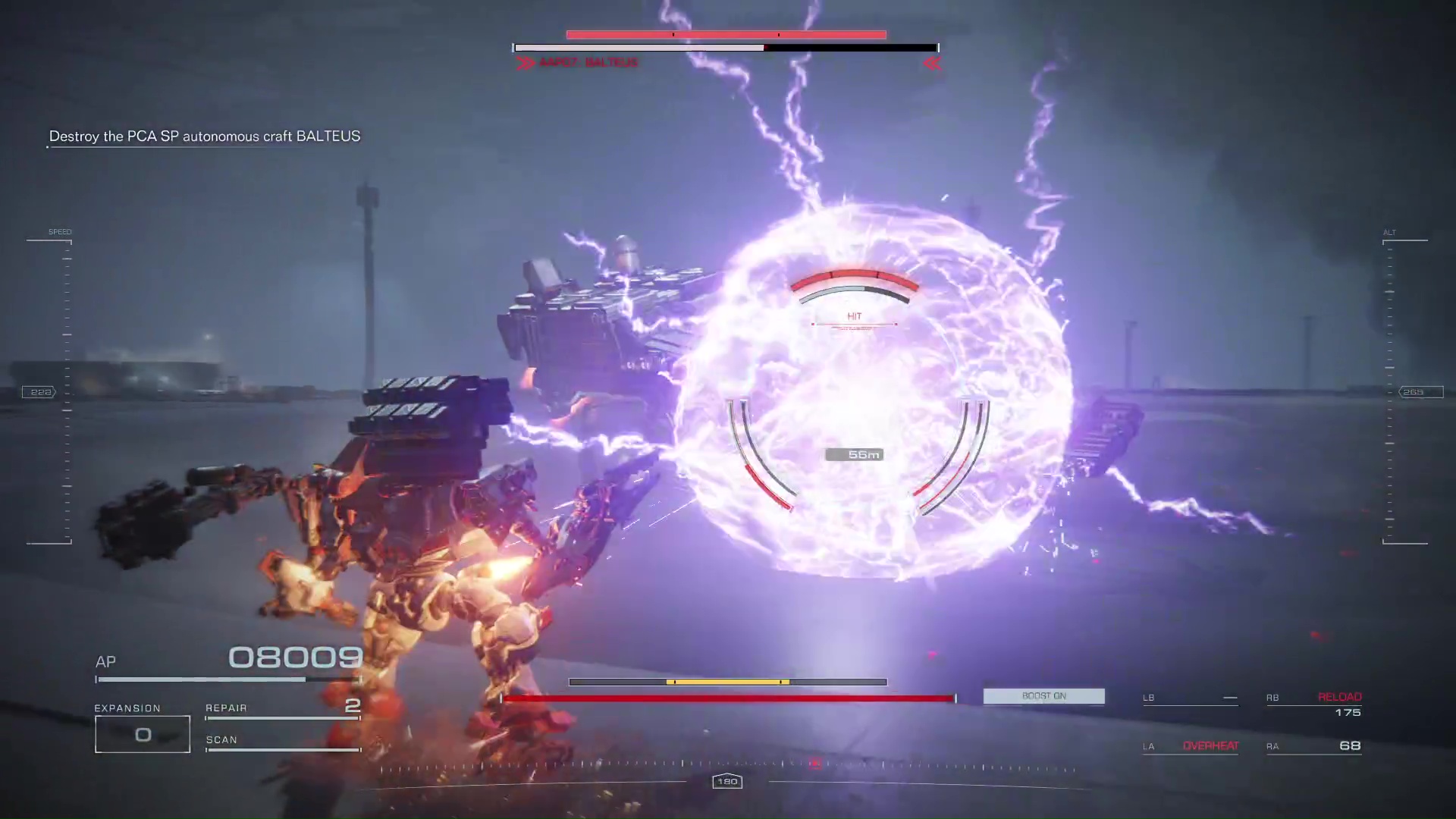
Taking a step back, there are moments where it comes together. Rocket-vaulting over Sir Killalot while blasting lasers and missiles in all directions, before sliding out of the path of a cannon shot and cutting a flanking attacker in half with an energy sword, then suddenly taking flight towards a new target with afterburners roaring… that's pretty cool. How could it not be? And sometimes the game drops in an optional mini-boss you can either evade or fight for bigger rewards, a feature I like a lot. There is, appropriately enough, a good core to Fires of Rubicon - but there's some shaky design choices around it that just hold it back too often to let me be wholly enthusiastic about it. Depending on what the final game does with this core, it could upgrade into something pretty fun, or run headlong into the scrap heap.
For more space odysseys, out the best sci-fi games available right now!







